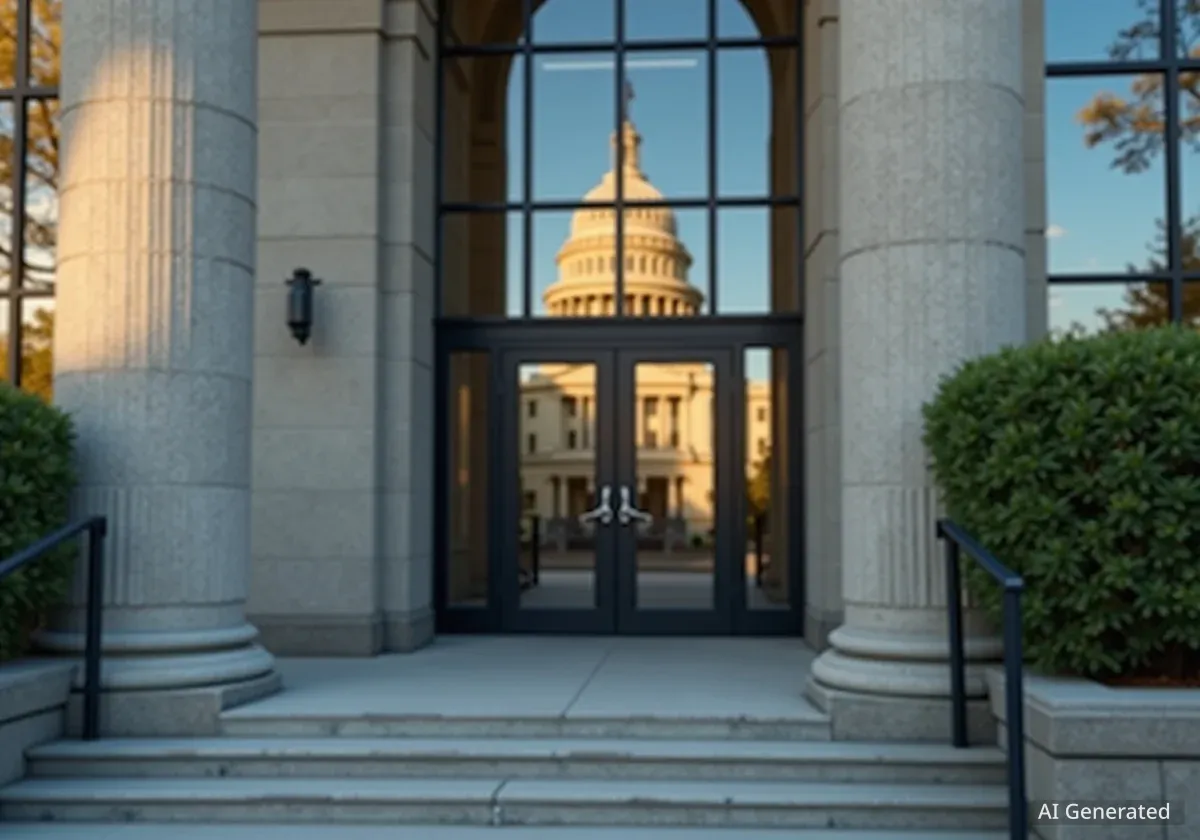The White House is developing a plan that could link federal research funding for universities to their adherence to specific Trump administration policies. This initiative aims to encourage institutions to align their practices with the administration's priorities, particularly concerning admissions, hiring, and campus culture.
Key Takeaways
- Universities may need to affirm policies to gain a competitive edge in research funding.
- Policies include merit-based admissions and hiring, without considering race or ethnicity.
- Institutions could also be asked to show a good return on student investment.
- The plan could change how federal research grants are awarded.
New Criteria for Federal Research Grants
Under the proposed plan, universities seeking government research funds might soon need to declare their commitment to specific Trump administration policies. This marks a potential shift from the current system, where grants are primarily awarded based on peer reviews and scientific merit.
Two White House officials confirmed to The Washington Post that the administration intends to ask universities to affirm that their hiring and admissions processes, especially for international students, are based solely on merit. This means racial or ethnic factors would not be considered.
"Now it's time to effect change nationwide, not on a one-off basis," a senior official stated to The Washington Post.
The plan could be introduced within the next few months. It would require universities to agree to a list of policies. This list includes not considering race in admissions and ensuring they are not "importing radicalism on campus."
Competitive Advantage in Funding
A White House official explained that while all universities would theoretically remain eligible for grants, the new system would offer institutions an opportunity. They could demonstrate compliance with Trump administration policies, potentially securing a "competitive advantage" during the grant review process.
This approach suggests a move towards incentivizing universities to adopt certain administrative philosophies. It would allow them to publicly declare their values and how they benefit students.
Fact: Current Grant System
Currently, federal research grants are awarded based on scientific merit and evaluations by expert peers. This process focuses on the quality and potential impact of the proposed research.
One official told The Washington Post, "I think there will be an opportunity for universities to be forward-looking and… state their positions out loud: What are the things that you believe? What are your values? How are you providing value to students?" They added, "And that will be something that not only is important to the administration… but it'll be super impactful for students too."
Focus on Student Return on Investment
Beyond admissions and campus culture, universities might also need to prove they offer students a strong return on their educational investment. This metric would assess the value students receive for their tuition and time.
When asked how this return on investment would be evaluated, an official provided a clear perspective. They criticized the current state of some higher education institutions.
Background: Administration's Stance
The Trump administration has frequently criticized diversity, equity, and inclusion (DEI) policies in academia. This new plan aligns with broader efforts to challenge long-standing practices in higher education.
An official told the newspaper, "Universities have become bastions of bureaucracy and waste, loading students with exorbitant debt all to provide them with a useless degree in a frivolous major. That is not the mark of a great university." This statement highlights the administration's concern over student debt and the perceived value of certain academic programs.
Impact on University Policies
The administration's focus on these new criteria could significantly influence university operations. Institutions might need to review and potentially revise their admissions criteria, hiring practices, and even curriculum offerings to align with the proposed guidelines.
Such changes could lead to debates within academic communities. They would weigh the benefits of federal funding against the autonomy to set institutional policies.
- Admissions: Emphasis on merit-only criteria, reducing consideration of race or ethnicity.
- Hiring: Similar merit-based approach for faculty and staff positions.
- Campus Culture: Preventing the "importing radicalism" on campuses, a broad term that could encompass various forms of activism or thought.
- Financial Accountability: Demonstrating that degrees offer tangible value and a good return on investment for students.
Previous Engagements with Universities
President Donald Trump has previously engaged with elite universities like Harvard and Columbia over various issues. These issues include DEI initiatives and pro-Palestinian campus protests. These past interactions indicate a pattern of challenging established academic norms.
For example, Columbia University reportedly agreed to pay a $200 million fine in July. This was done to resolve issues with the administration and reverse cuts to its federal funding. Harvard University has also faced pressure. While it has pursued legal challenges, reports suggest it is considering establishing a center for conservative scholarship.
These instances show the administration's willingness to use its influence to shape university policies. The new funding plan would expand this approach to a wider range of institutions.
The Daily Beast has sought comment from the White House regarding these developments.





